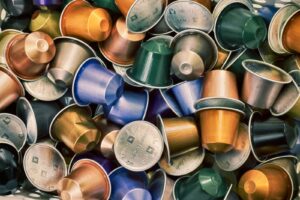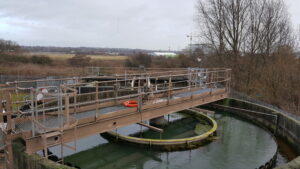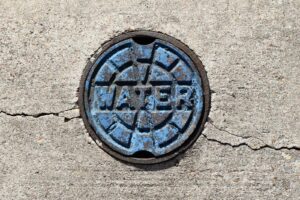Plastic has a significant role to play in achieving a sustainable future. Global production has topped 300 million metric tons per annum, a figure expected to double in the next 20 years. However, the systems for dealing with plastic waste lag significantly behind other materials, with the Ellen MacArthur Foundation reporting in January 2016 that only 14% of plastic packaging is collected for recycling and just 10% actually recycled.
The remaining residual plastic waste (RPW) goes to landfill (40%), incineration (14%), or shockingly, leaks into the environment (32%). This report predicts that, with no change, by 2050 there will be more plastic than fish in the world’s oceans!
To help usher this change, at Recycling Technologies, we have created a process to produce a quality hydrocarbon, Plaxx™, comparable to virgin material, with scalability and a high return on investment.
Plaxx is a synthetic, ultra-low sulphur crude oil, the initial market for which is as a Heavy Fuel Oil (HFO), though trials are currently underway with Ricardo and Lloyds Register to certify it as a marine fuel to meet the new IMO fuel standards. Components of Plaxx are being developed as a commodity paraffin wax and we are engaged with plastics manufacturers to trial it as a feedstock for plastics manufacturing, closing the circular economy.
Our process for chemically recycling plastic was initiated at Warwick University and has since been developed and industrialised in collaboration with partners from the waste industry, academia and professional practitioners from other disciplines. These include the University of Surrey, University of Birmingham, University of West England (UWE) and industrial partners such as ABB, Chartertech, and EIS.
The RT700 will be installed at Swindon Council’s recycling centre to demonstrate its capabilities, before mass production begins on the commercial unit.
Third Party chaired HAZOPs and an independent technical review from AMEC Foster Wheeler have been completed to ensure process safety, and the RT700 successfully produced its first Plaxx in June 2016.
After initial trials at Recycling Technology’s facility, the RT700 will be installed at Swindon Council’s recycling centre to demonstrate its capabilities, before mass production begins on the commercial unit, the RT7000. This model will be transportable by land or sea, and can be installed onto any waste management site with minimum preparation. Each unit will be capable of recycling 7000 tonnes of RPW per year into 5,200 tonnes of Plaxx.
We have worked closely with Swindon Council to ensure the smooth implementation of the RT700 and believe it is vital that local authorities have an active role in the recycling process, and indeed, in welcoming new technological developments, such as the RT700, to achieve this. Recycling is a global issue, which means that everyone has their part to play. By working with Recycling Technologies, the council will not only see its local waste management strategy strengthened exponentially, but will also have significant benefits for the local economy.
All local authorities have strict waste recycling and waste management targets to meet, but it is important to be mindful that for all the good intentions in the world, fulfilling these ambitions is an expensive and logistically challenging process. Transporting plastic waste to a facility where the recycling process can take shape can be a significant challenge, one which must influence any new solutions created to ease the recycling process.
By being easily transportable and significantly more compact than the majority of today’s alternative plastic recycling equipment, the RT700 helps local authorities, such as Swindon Council, to bring the solution to the waste, eases the process of obtaining planning permission and eliminates any cost for transporting the waste itself.
Bernie Brannan, board director – service delivery, Swindon Council, comments on our partnership that ‘it is evident this technology should have financial, environmental and economic benefits, not only for Swindon Borough Council but further afield as well’.
Our business model is to design, build, own and operate RT7000s on existing waste sites, where the waste customer will agree a gate fee per tonne for RPW processed and a site lease agreement. We will sell the Plaxx separately to offtakers. With payback times currently expected to be less than three years, our current projections are to have 45 machines in operation by 2024, generating revenue of £71m.
















